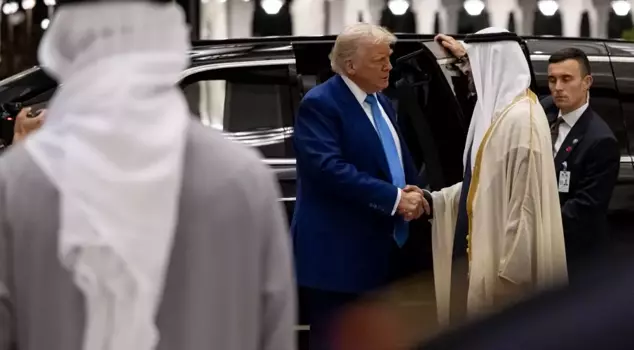
16.05.2025 12:20
U.S. President Donald Trump signed economic agreements exceeding $2 trillion with Saudi Arabia, Qatar, and the United Arab Emirates (UAE) during his Middle East tour this week.
During the visits from May 13 to 15, covering Riyadh, Doha, and Abu Dhabi, numerous agreements focusing on artificial intelligence, defense, aviation, and energy were signed between American companies and state-linked or private companies in the Gulf.
$600 BILLION INVESTMENT COMMITMENT FROM SAUDI ARABIA
According to the White House's statement, Saudi Arabia has committed to investing $600 billion in the U.S. over the next four years; Trump also noted that this figure could reach $1 trillion.
The package includes a defense agreement worth $142 billion for missile and aircraft purchases, as well as a $5 billion 'Artificial Intelligence Zone' to be established by Amazon Web Services, along with various artificial intelligence infrastructure projects to be developed using Nvidia chips. Trump stated at the summit in Riyadh, "This is a historic partnership that will create millions of American jobs."
VALUE OF AGREEMENTS WITH QATAR REACHES $1.2 TRILLION
The White House announced that a total of $1.2 trillion worth of agreements were signed in Qatar. Among these agreements, the $96 billion order from Qatar Airways for 210 Boeing 787 and 777X aircraft equipped with GE Aerospace engines stood out.
Other agreements signed in Qatar include $8.5 billion energy projects with McDermott and a $1 billion joint venture for quantum technology with Quantinuum. According to the White House, the Qatar agreements also include $97 billion engineering projects with Parsons, $3 billion defense agreements with Raytheon and General Atomics, and $38 billion investments for Al Udeid Air Base.
$200 MILLION FROM THE UAE
Yesterday, during Trump's visit to Abu Dhabi, new commercial agreements exceeding $200 billion were signed between the United Arab Emirates (UAE) and American companies. According to the White House, these agreements cover aviation, energy, artificial intelligence, and advanced technology sectors. The agreements include a 5-gigawatt (GW) capacity artificial intelligence campus opened in Abu Dhabi and the U.S.-UAE Artificial Intelligence Acceleration Partnership.
Additionally, Etihad Airways placed an order for 28 Boeing 787 and 777X aircraft worth $14.5 billion. These aircraft are expected to be equipped with engines produced by GE Aerospace and create jobs in the U.S. aviation sector. The White House emphasized that this order strengthens the long-standing commercial aviation partnership between the two countries.
The UAE also reaffirmed its plan announced in March 2025, which envisions an investment of $1.4 trillion in the U.S. over the next 10 years.
NUMBERS MUST BE MONITORED FOR FEASIBILITY
According to experts commenting to Western media, the agreements aim to deepen economic ties between the U.S. and the Gulf while balancing China's technological influence. Experts also express that the figures are ambitious and that realization may take time, and the feasibility should be monitored.
The White House described President Donald Trump's Middle East tour, which includes Saudi Arabia, Qatar, and the United Arab Emirates, as a "game changer" for the U.S. economy. However, turning these large agreements into tangible economic gains and addressing the accompanying ethical questions pose a significant test for the Trump administration.